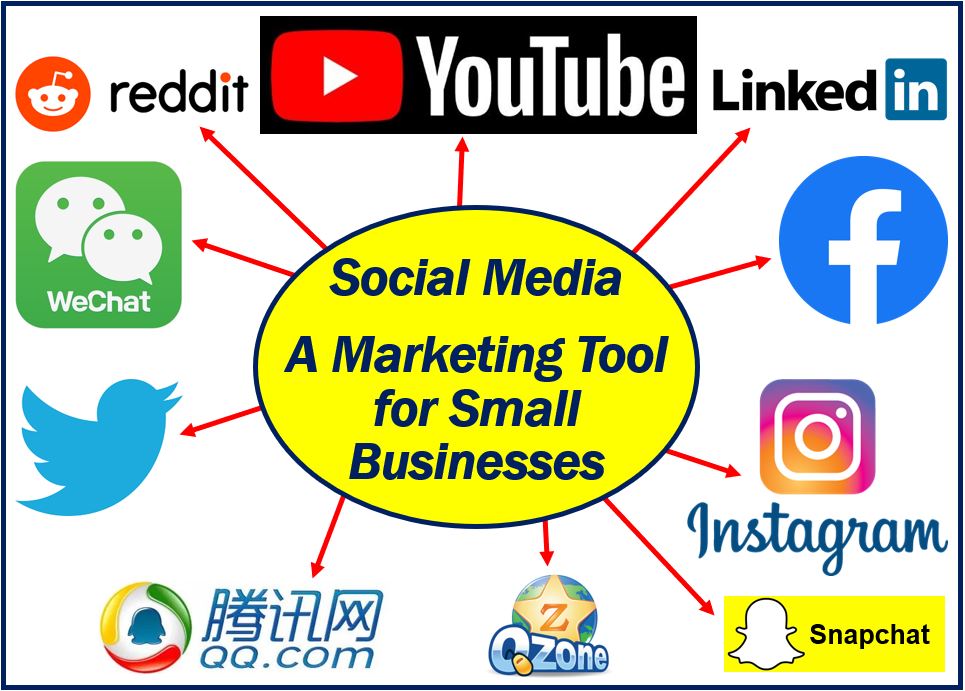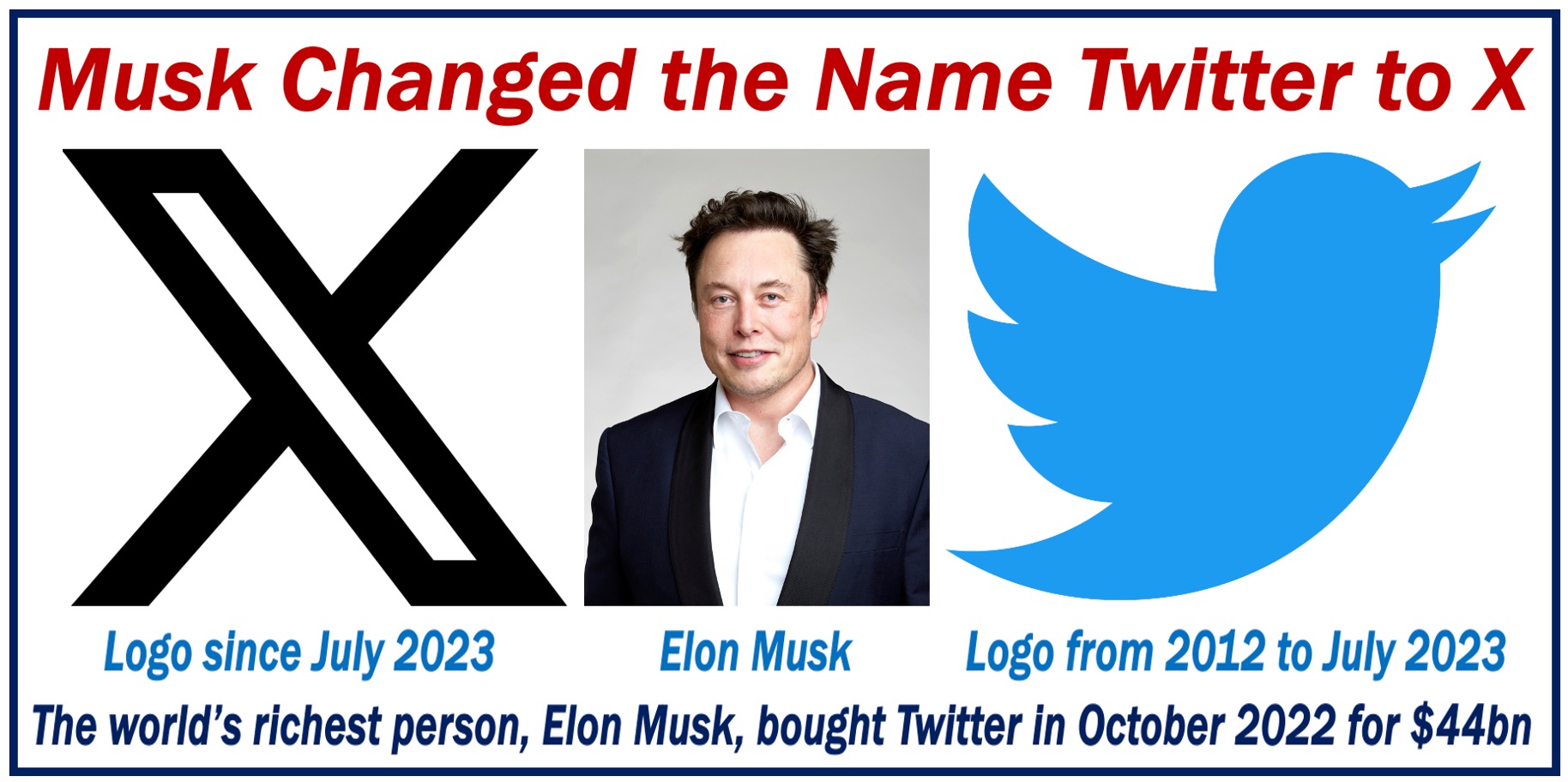Social Media refers to applications and websites – the collective of online communications channels – that enable people, companies, and other organizations to create and share content on social networking sites and blogs.
There are many applications (apps) and websites that are dedicated to social networking, forums, social bookmarking, microblogging, products/service reviews, social curation (Digg, Reddit), wikis, virtual worlds, and other types of social media.
Individuals, companies, and other organizations through social media create, share or exchange a range of things, including ideas, pictures, videos, career interests, opinions, jokes, complaints, experiences, and items of news. Both companies and individuals use social media platforms for marketing purposes too.
Social media is a term that we currently throw around a lot. Its meaning has widened considerably since its usage in language started to become popular. If we use the term to describe sites like X (formerly Twitter) and Facebook, and also Digg and Reddit, then its meaning starts becoming rather vague.

Social media has many meanings
As commonly happens when a term is overused, social media is beginning to have different meanings for different people. People who have a more restricted view on what it defines tend to give it the same meaning as social networking – websites such as X (formerly Twitter), Facebook, etc. Others will tell you that blogs are not included in its definition.
Elise Moreau, writing in webtrends.com, has an interesting and, in my opinion, accurate approach to the meaning of social media. She starts by looking at each word ‘social’ and ‘media’ individually:
– Social: refers to people interacting with each other by sharing information.
– Media: refers to channels of communications, including TV, radio, newspapers, magazines, billboards, and the Internet.
So, if we pull the meanings of these two separate terms together, we get:
“Social media are web-based communication tools that enable people to interact with each other by both sharing and consuming information.”
Social media depends on web-based and mobile technology to create highly interactive platforms through which individuals and other entities can share, discuss, create, co-create and modify user-generated content.
It is significantly changing how we all communicate with each other and tell our network members about ourselves.

Social media vs. traditional media
Social media differs considerably from traditional media – physical newspapers and magazines, plus TV and radio. While the former is a dialogic transmission system (many viewers and many creators all communicate with each other) traditional media operates under a monologic transmission system (there is just one source and many receivers).
Studies show that people are spending more and more time each week on social media sites, in many cases at the cost of other types of sites, and definitely at the cost of offline activities and even sleep. For advertisers, these types of sites and blogs have become extremely important.
In 2015, Nielsen.com reported that three of the most popular online brands worldwide were social media-related – Facebook, YouTube, and Wikipedia. Globally, we spend 22% of all our time online on these types of sites.
Three-quarters of global consumers with Internet access visit social networks or blog sites. The average visitor in 2015 spent 24% more time visiting these sites compared to 2014.
American business magnate, Bill Gates, who co-founded Microsoft and became the richest person in the world, once said: “The PC has improved the world in just about every area you can think of. Amazing developments in communications, collaboration, and efficiencies. New kinds of entertainment and social media. Access to information and the ability to give a voice to people who would never have been heard.”
Negative effects
Several negative effects have been associated with social media, especially regarding privacy, information overload and Internet fraud.
Angry or emotional exchanges can eventually lead to serious and sometimes dangerous confrontations in the real world outside of the Internet.
Young and older naïve people can be lured by predatory pedophiles, murderers and rapists.
Studies suggest that social networking sites may have a negative effect on individuals’ self-esteem and self-worth. One study found that people with a greater social comparison orientation – they compare their own lives with those of their family members, friends and work colleagues – tend to use these sites more heavily compared to individuals with low social comparison orientation.
Take Facebook for example; most members tend to post positive aspects of their lives; this makes other people wonder why their own lives are not as fulfilling or exciting. This, psychologists say, can push susceptible people into depression and other self-esteem issues.
Online and mobile phone bullying has become a serious problem for both children and adults across the world.
Positive effects
Social networking and blogging sites are great places to document memories, advertise oneself, form friendships, and learn about and explore things.
In social networking sites we all have the possibility of becoming content creators. Networked individuals who create content can reach a wider audience.
If used effectively, it can positively affect people’s social standing and help them gain political support, which can lead to influence on issues they find important. Participants in the 2011 Tunisian revolution, for example, used Facebook to organize meetings and protest actions.
Many websites, such as Wiki, are the result of individuals creating and collaborating with other network individuals.
According to a survey carried out by Pew Internet Research, ‘networked individuals’ are involved in considerably more creation activities compared to their non-networked counterparts.

Networked individuals typically take part in the following content creation activities:
- Writing material on Facebook and other social networking sites. Sixty-five percent of internet users say they do this.
- Sharing photographs – done by 55% of Internet users.
- Reviewing products and contributing to rankings – 37% do this.
- Creating tags of content – 33%.
- Posting their comments on third-party blogs or websites – 26%.
- Remixing material gathered online into a new creation: 15% say they do this with text, audio, video or photographs.
- Creating a blog or working on one.
On many occasions, social media has been used to help in the search for missing persons.
According to socialmediadefined.com, Social Media is:
“The future of communication, a countless array of internet-based tools and platforms that increase and enhance the sharing of information. This new form of media makes the transfer of text, photos, audio, video, and information in general increasingly fluid among internet users. Social Media has relevance not only for regular internet users but business as well.”
Business advertising
A huge number of ‘social media experts’ have emerged over the past five years, offering to help companies best utilize social networking sites and blogs to promote their products, services, or messages.
These sites have a great deal of personal data – such information is worth gold for marketing and advertising executives.
Instead of reactively targeting users who search for a specific term online, social media advertising proactively and accurately targets relevant users before they even start their search. Social networks are a dream come true for advertisers, because of the advanced targeting option, the prevalence on smartphones and other mobile devices, and reliable conversion tracking.
We can be certain that personal data from this type of media usage will continue being tracked and logged for the benefit of any company that is prepared to pay for it.
Advertising agencies today warn businesses that if they do not invest in social media, their competitors are likely to pull ahead rapidly.
Video – What is Social Media?
This interesting video, from our sister channel in YouTube – Marketing Business Network, explains what a ‘Social Media’ is using simple and easy-to-understand language and examples.
